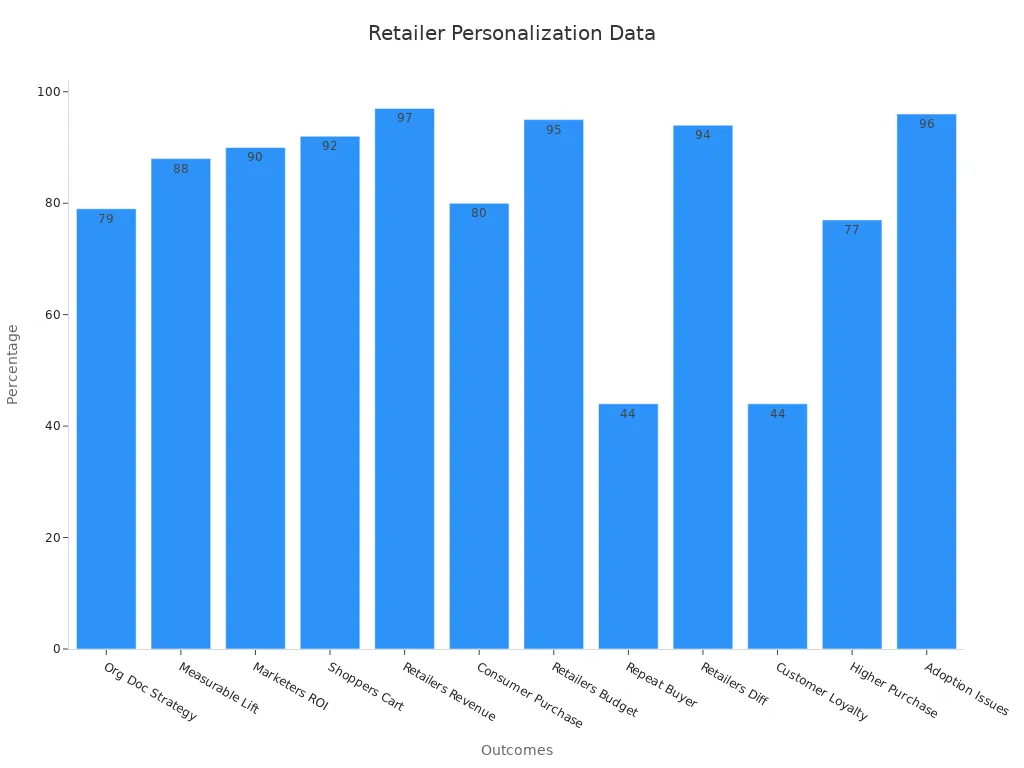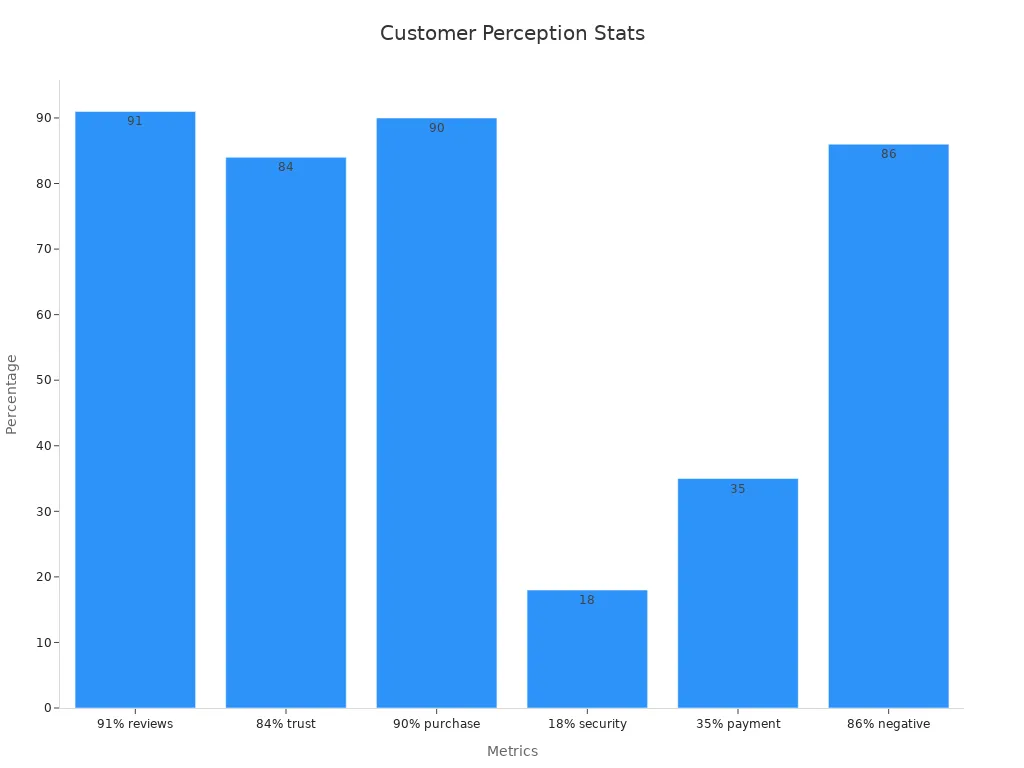10 Questions to Ask Your Shopping Cart Supplier Before Making a Purchase Decision

When you talk to a shopping cart supplier, you want to feel confident in your purchasing decision. Here are 10 key questions every buyer should ask before buying shopping carts:
What materials do you use?
How durable are your carts?
Do your carts have certifications?
Can I customize size and design?
What branding options are available?
What system features do you offer?
What is your minimum order quantity?
How long is delivery?
Are there bulk discounts or hidden fees?
What warranty and support do you provide?
The shopping cart market keeps growing, with a 2024 value of USD 796.06 million and a 26.40% CAGR. Many suppliers compete, so asking these questions helps buyers avoid costly mistakes and get the best value when buying shopping carts.
Metric | Value/Description |
|---|---|
Market Size 2024 | USD 796.06 million |
CAGR (2025-2032) | 26.40% |
Key Drivers | Supermarket expansion, smart carts, convenience |
Product Trends | Durable, ergonomic, sustainable carts |
Key Takeaways
Ask your supplier about the materials and durability of their shopping carts to ensure long-lasting quality.
Check customization options like size, design, and branding to match your store’s needs and boost customer loyalty.
Understand order details such as minimum quantities, delivery times, and shipping policies to avoid surprises.
Look for clear pricing with bulk discounts and no hidden fees to get the best value for your money.
Choose suppliers with good warranties, strong support, and eco-friendly practices to protect your investment and the planet.
Cart Quality

Materials Used
When you look at shopping carts, you want to know what they are made of. The right materials make a big difference in quality and how long your carts last. Many suppliers use steel, plastic, or a mix of both. Some companies, like Unarco Industries, focus on sustainability. They reuse and recycle materials, keeping 95% of parts out of landfills. This helps the environment and saves money. You should ask your supplier if they use recycled materials or have any special processes. Good materials mean your shopping carts will stand up to daily use and keep looking good.
Durability Standards
You want shopping carts that can handle heavy loads and lots of use. Ask your supplier about their durability standards. Do they test their carts for strength? Do they have a process for quality control? A strong cart will not bend or break easily. Some suppliers run carts through tough tests to make sure they last. If your supplier has a quality control team, that is a good sign. You want to know that every cart meets the same high standard.
Tip: Always ask for details about how the supplier checks the quality of their shopping carts. This helps you avoid carts that wear out too fast.
Certifications
Certifications show that shopping carts meet certain safety and quality rules. Ask your supplier if their carts have any certifications. These might include ISO standards or safety marks. Certifications mean the supplier follows strict rules for making and testing their products. When you see these marks, you know the carts have passed important checks. This gives you peace of mind about the quality you are getting.
Customization Options
Size and Design
You want shopping carts that fit your store and your customers. Some stores need big carts for families. Others need smaller carts for quick trips. Many suppliers offer a range of sizes and shapes. You can even find custom shopping baskets for stores with limited space. The right size helps shoppers move easily and buy more.
Check out this table to see what the industry offers:
Industry Benchmark Category | Details |
|---|---|
Product Types | Roller basket, Child cart, Tote box, Basket cart, Cargo cart, Others |
Materials | Stainless steel, Plastic hybrid, Aluminium, Others |
Wheel Options | Three-wheel, Four-wheel (largest and fastest growing segment) |
Applications | Supermarkets, Hypermarkets, Retail stores |
Design Innovations | RFID integration, Automated trolley systems |
Market Size (2023) | USD 1.3 billion |
Market Growth Rate | 27.4% CAGR (2025-2032) |
You can ask your supplier about these options. The right design can make your store stand out and improve the shopping experience.
Branding Choices
Branding matters. You want your shopping cart system to match your store’s colors and logo. Many suppliers let you pick colors, add your logo, or even print messages on the cart. When you personalize your carts, shoppers remember your brand.
Personalized carts do more than look good. They help you grow your business. Studies show that stores using branding and personalization see up to 30% more revenue. Conversion rates can reach 45%. Most retailers say that branding helps them stand out and keeps customers coming back.

Tip: A strong brand on your shopping cart system can turn first-time shoppers into loyal fans.
Shopping Cart System Features
A modern shopping cart system does more than carry groceries. You can choose features that make shopping easier and boost sales. Here are some popular options:
Retargeting for abandoned carts
Multiple payment gateways
Guest checkout and single-page checkout
Discounts, coupons, and flash sales
Wish lists, cross-selling, and upselling
Faceted search and product reviews
Product bundling and live chat during checkout
Full mobile commerce support
Plugin and add-on support
You can also get analytics tools that track sales and customer habits. Some systems connect with your accounting software or POS. You can pick a commercial, custom, or open-source shopping cart system. Each type has its own benefits. The right functionality helps you serve your customers better and grow your store.
Order and Delivery
Minimum Order Quantity
When you talk to a supplier, always ask about their minimum order quantity. Some suppliers want you to buy a large number of carts at once. Others let you order just a few. If you run a small store, you might not need hundreds of carts. Make sure you know the minimum before you place your order. This helps you avoid surprises and keeps your budget on track. As a buyer, you should also check if the supplier offers discounts for bigger orders. Sometimes, ordering more carts saves you money in the long run.
Lead Times
Delivery lead times matter a lot. You want to know how long it takes for your shopping carts to arrive after you order them. Some suppliers can ship quickly, while others need more time to prepare your order. Ask your supplier for a clear timeline. If you need carts for a grand opening or a busy season, plan ahead. Reliable suppliers use order processing technology to speed up packing and tracking. They also check addresses to prevent delays. As a buyer, you should always ask for updates and tracking information. This way, you know exactly when to expect your delivery.
Shipping Policies
Shipping policies can be tricky, so you need to ask the right questions. Good suppliers explain their delivery service policy, including what they ship, how they ship it, and when you will get your order. They also share details about shipping partners and costs. Some suppliers offer free shipping if you order a certain amount. Others let you calculate shipping and tax before you pay. As a buyer, you should look for clear tables that show delivery times and charges. Here’s an example of what you might see:
Description | |
|---|---|
Delivery Service Policy | Rules and terms for delivery |
Transportation Optimization | Efficient routes and schedules |
Returns and Reverse Logistics | How returns and refunds work |
Outbound Transportation | How products get shipped to you |
Warehousing Operations | How inventory is managed before shipping |
You should also check if the supplier offers order tracking tools. These tools help you follow your delivery from the warehouse to your store. If you ever need to return a cart, ask about their reverse logistics process. A good supplier makes returns easy and stress-free.
Pricing Structure
Bulk Discounts
When you buy shopping carts, you want the best price. Many suppliers offer discounts if you order in bulk. If you need a lot of carts, ask your supplier about their discount policy. Sometimes, you can save a lot by increasing your order size. You should always compare competitive supplier quotes before making a decision. A good supplier will give you a clear price breakdown and explain how their discounts work. You can also ask if they have special coupons or seasonal deals. These can lower your cost even more. When you send a request for quote, mention your order size and ask for all available discounts.
Hidden Fees
Hidden fees can surprise you and raise your total cost. You might see extra charges for shipping, handling, special packaging, or taxes. These fees often cause buyers to abandon their carts. You want your supplier to be upfront about every price detail. Ask for a full list of fees before you agree to buy. Look for suppliers who show real-time price changes when you pick shipping options. This helps you avoid surprises at checkout. Experts say that clear pricing builds trust and keeps buyers coming back. If you see all fees before you pay, you feel better about your purchase. Coupons and discounts should also be easy to find and use.
Tip: Always check the supplier quotes for hidden fees. Transparency helps you make smart choices and improves your shopping experience.
Payment Terms
Payment terms matter when you plan your budget. Most suppliers offer net-30, net-60, or net-90 days. This means you can pay after you get your carts. Many buyers like these options because they help with cash flow. In fact, about half of B2B buyers prefer payment methods like net-terms or ACH instead of credit cards. If a supplier offers flexible payment terms, you are more likely to finish your purchase. Clear payment options reduce friction and help you manage your cost. When you talk to a supplier, ask about their payment terms and make sure they fit your needs.
Payment Term | Description |
|---|---|
Net-30 | Pay within 30 days |
Net-60 | Pay within 60 days |
Net-90 | Pay within 90 days |
If you see the right payment terms, you can plan your spending and avoid stress. Always ask your supplier to explain their terms before you buy.
Warranty and Support
Warranty Coverage
When you buy shopping carts, you want to know what kind of warranty comes with them. Ask your supplier about the length and coverage of their warranty. Some suppliers offer one-year coverage, while others may give you up to five years. A good warranty protects you from unexpected repair costs. If a cart breaks or a wheel falls off, you want to know if the supplier will fix it or send you a new part. Always check if the warranty covers common problems like broken handles or damaged wheels. This helps you avoid paying extra for repairs.
After-Sales Support
After you get your shopping carts, you might need help. Maybe you have questions about assembly or need advice on cleaning. A reliable supplier will answer your calls and emails quickly. They should have a support team ready to help you solve problems. Some suppliers even offer training for your staff. Good after-sales support makes your job easier and keeps your carts in top shape. If you ever need to return a cart or get a replacement, fast support saves you time and stress.
Tip: Ask your supplier if they have a dedicated support line or online help center. Quick answers can make a big difference for any buyer.
Maintenance and Parts
Keeping your shopping carts in good condition saves money and keeps customers happy. Most carts last five to ten years if you take care of them. You should check wheels, handles, and screws every month. Cleaning with safe products and storing carts indoors helps them last longer. If you need to replace a wheel or handle, the cost is usually $20 to $50 per repair. New carts cost between $100 and $200. If you spend more than half the price of a new cart on repairs each year, it might be time to replace it.
Here’s a quick look at maintenance facts:
Aspect | Details / Statistics |
|---|---|
Typical Shopping Cart Lifespan | |
Repair Costs (wheels, handles) | $20 to $50 per repair |
New Cart Cost | $100 to $200 |
Replacement Threshold | Replace if annual repairs > 50% of original cart value |
Maintenance Frequency | Monthly checks for wheels, handles, screws |
Maintenance Practices | Cleaning, sanitizing, indoor storage |
You can save money by repairing parts, but frequent breakdowns add up. Over five years, maintenance on old carts can cost as much as buying new ones. As a buyer, you should ask your supplier about replacement parts and how fast they ship them. Some suppliers offer bulk discounts on parts, which helps you plan for the future.
Environmental Impact

Sustainable Materials
You care about the planet, and so do many shopping cart suppliers. When you ask about materials, look for carts made from recycled or sustainable sources. Some companies use steel or plastic that comes from old carts or other recycled products. This helps keep waste out of landfills and saves energy.
Suppliers who use local materials also help the environment. They cut down on long trips for shipping, which means fewer trucks on the road and less pollution. You can ask your supplier if they use local or recycled materials. This small step can make a big difference.
Did you know? Packaging makes up about 45% of the carbon footprint in ecommerce. Choosing carts with less plastic and more recycled content helps lower this number.
Eco-Friendly Practices
You want your store to be green, and your shopping cart supplier can help. Many top suppliers now track their carbon footprint with special dashboards. These tools show how much carbon they use and help them reach their goals.
Here are some eco-friendly practices you should look for:
Carbon neutral shipping through verified offset projects
Use of recycled and biodegradable packaging
Sourcing materials locally to cut down on transport emissions
Setting clear goals to reduce carbon and energy use
Consolidating shipments to save fuel
Using automation tools to measure and offset emissions
Some companies, like Wildway, have offset over 55 tons of carbon by combining green packaging with carbon-neutral carts. Others, like Simbly, offer fully carbon neutral shipping and see bigger orders as a result.
You can also ask if your supplier has a sustainability mission statement. Companies that set and track goals—like reducing energy use or increasing recycled content—show real commitment to the environment.
Tip: When you choose a supplier with strong eco-friendly practices, you help your business and the planet. 🌎
Shopping Cart Supplier Experience
Industry Reputation
You want to work with a shopping cart supplier that people trust. A strong reputation means other stores have had good experiences. Most shoppers check reviews before they buy anything. In fact, 91% of people read online reviews, and 84% trust them as much as a friend’s advice. If a supplier has lots of positive feedback, you can feel more confident in your choice. On the other hand, negative reviews can scare buyers away. About 86% of people hesitate to buy from a business with a bad reputation. You should always look for a supplier with a proven track record.
Statistic | Description | Impact on Shopping Cart Suppliers |
|---|---|---|
91% of consumers read online reviews before purchase | High consumer engagement with reviews indicates the importance of reputation | Encourages suppliers to foster positive reviews to build trust |
84% trust online reviews as much as personal recommendations | Demonstrates strong influence of reviews on consumer trust | Highlights need for credible and positive customer feedback |
90% say positive reviews influence purchase decisions | Positive reviews directly affect buying behavior | Emphasizes the value of maintaining a strong positive reputation |
86% hesitant to buy from businesses with negative reviews | Negative reputation deters customers | Underlines importance of managing and responding to negative feedback |

Tip: Always check a supplier’s online ratings and read what other store owners say.
Years in Business
Experience matters when you pick a shopping cart supplier. A company that has been around for many years knows how to solve problems and keep customers happy. You can ask, “How long have you been in business?” If a supplier has a long history, it shows they know the market and can handle big orders. New suppliers might offer good deals, but experienced ones often give better support and fewer surprises.
References and Testimonials
You should always ask for references or testimonials before you buy. Good suppliers will share stories from happy customers. These reviews help you see if the supplier delivers on their promises. Some companies even use research to prove their claims. For example, a study with 883 shoppers checked for bias and used strong methods to make sure the results were fair. The study found that most people trust reviews and that positive feedback leads to more sales.
Evidence Aspect | Details |
|---|---|
Sample Size | 883 valid responses, exceeding minimum requirements for statistical power and post-hoc analysis. |
Demographic Profile | Majority aged 21-30 (37.3%), female (58.6%), bachelor's degree holders (55.3%), with 1-3 years online shopping experience (41%). |
Statistical Software Used | SPSS v28 for demographic and bias checks; SmartPLS 3.3.3 for PLS-SEM to analyze complex relationships. |
Common Method Bias Tests | Harman's single factor test showed 36.036% variance (<40%), and VIF values ranged 1.247–2.038 (<3.33), indicating no severe bias. |
Measurement Model Validity | Factor loadings mostly above 0.7, composite reliability (CR) values above 0.79, and average variance extracted (AVE) above 0.56, confirming construct validity and reliability. |
Validated Scales | Multi-item scales adapted from prior validated research, ensuring measurement reliability for constructs like hesitation at checkout, price waiting, and abandonment behavior. |
Note: When a shopping cart supplier provides strong references and real testimonials, you can trust their service and products.
When you use a checklist before buying shopping carts, you set yourself up for success. You get clear shipping costs, trusted payment options, and honest details about every order. You also enjoy features like customer rewards, easy order tracking, and support for your favorite marketing tools. These steps help you build trust with your shoppers and keep them coming back. Ask the right questions, and you’ll feel confident every time you make a purchase.
FAQ
What should you do if a shopping cart arrives damaged?
Contact your supplier right away. Take photos of the damage. Most suppliers will replace or repair the cart. Keep your order details handy for a faster solution.
Can you order replacement parts for your carts?
Yes, most suppliers offer replacement wheels, handles, and other parts. Ask your supplier for a parts list. This helps you fix carts quickly and save money.
How often should you clean your shopping carts?
You should clean your carts at least once a week. Use mild soap and water. For busy stores, daily cleaning keeps carts looking good and safe for customers.
Do shopping carts come assembled?
Some suppliers ship carts fully assembled. Others send them in parts. Ask your supplier before you order. If you get parts, check if they include easy instructions.
What payment methods do suppliers usually accept?
Most suppliers accept credit cards, ACH transfers, and sometimes checks. Some offer net-30 or net-60 payment terms. Always ask about payment options before you buy.
See Also
Easy Self-Checkout Strategies To Purchase Garlic Smoothly
Revolutionizing Online Stores With AI-Powered E-Commerce Tools
Understanding Vending Machine Costs And Key Pricing Factors
Benefits And Features Of AI-Driven Combo Vending Machines
Analyzing Vending Machine Costs, Models, And Return On Investment
